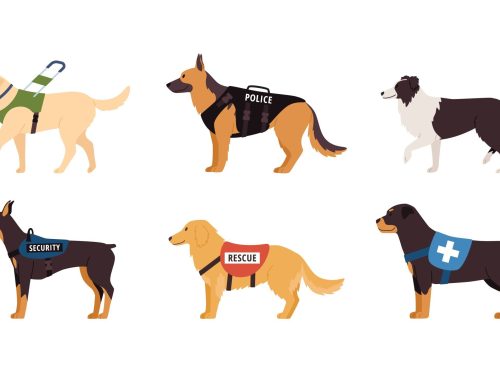Many dog owners have been switching their pets to a grain-free diet for the numerous health benefits this brings. The lack of grains promotes a healthy gut and prevents leaky gut syndrome, reduces the risk of allergies and food sensitivities, and even improves skin and coat. Nonetheless, there has been a backlash against the grain-free health trend from the start, particularly from conventional dog food companies, who are concerned they will see a drop in sales and lower profits. The latest criticism, spurred by a grain-free heart disease study, is that a lack of grains in dog food increases dogs’ risk of dilated cardiomyopathy.
But is there any truth to this claim?
The So-Called Grain-Free Heart Disease Study
The study that is receiving all the attention was conducted by a team led by veterinarians at University of California in Davis. The researchers found that some dogs who were eating popular brands of grain-free kibble (most of them high in legumes) were suffering from taurine-deficient dilated cardiomyopathy (DCM).
This is a type of heart disorder that occurs when the dog is deficient in the amino acid taurine. It affects the muscles of the heart and can lead to congestive heart failure, which is sometimes fatal.
There are a couple problems with the so-called grain-free heart disease study.
First, it is highly selective: it only looked at dogs that suffered from DCM. There is no indication as to how widespread the condition is among all dogs on a grain-free diet.
Second, the small number of cases mean that the study is not statistically significant. The study only looked at 24 dogs, all of which were golden retrievers. Furthermore, one of the dogs diagnosed with DCM was not even eating a grain-free or legume-rich diet.
What Actually Causes Heart Disease in Dogs?
There are several factors that can actually contribute to heart disease in dogs that you should be concerned about.
1. Genetic Predisposition
In many cases, heart disease is due to a genetic predisposition. Certain breeds are far more likely to suffer from congenital heart conditions than others. These breeds include:
- Giant schnauzers
- Dobermans
- Great Danes
- Newfoundlands
- English bulldogs
- Boykin spaniels
- Boxers
- Beagles
- Golden retrievers
- Rottweilers
- German shepherds
- Keeshonds
- Fox terriers
- Bull terriers
- Labradors
- Cavalier King Charles Spaniels (at a higher risk of heart murmurs, which can lead to heart disease)
The best way to avoid heart disease in these cases is to never breed a dog with a history of congenital conditions. Owners of the above breeds should also pay extra attention to diet and exercise.
2. Poor Diet
As we’ve already seen, dogs need to eat a balanced diet with sufficient taurine to prevent heart disease. In addition, they need to receive enough L-carnitine.
3. Untreated Heartworm
Heartworm is a type of parasite carried by mosquitoes. As there are no symptoms in the early stages, the best course of action is regular deworming (as per your vet’s recommendations) and an annual heartworm test.
If your dog does suffer from heartworm, you may notice symptoms including a cough or lethargy and, later, bleeding from the lungs. Your vet will need to put your dog on a treatment that will include a month-long rest after the initial medication.
4. Age
Dogs become more susceptible to heart disease as they age. The most common condition is endocardiosis, which occurs simply because the heart valve has been working for many years. As a result, the dog develops a heart murmur.
What Should Responsible Dog Owners Do?
Whereas it is always important to stay up to date on the latest research about dog food and pet health, there is no reason to be concerned about feeding a grain-free diet at this time.
Not only is the grain-free heart disease study far too small to be significant, you also need to remember that correlation is not causation. There could be a number of other factors contributing to the cases of heart disease in the study. The researchers of the grain-free heart disease study themselves even suggested that the issue may be linked to a lack of byproducts like organ meat rather than a lack of grains. It could also that the selectivity of the study makes a link appear where there isn’t one.
It is important to remember the numerous benefits of a grain-free diet. However, if you are concerned, there are a few things you can do. First, choose a grain-free dog food that has a nutritional profile backed by research. Second, consider giving your dog a taurine supplement — this is far healthier than reintroducing grains into your dog’s diet. Finally, promote heart health to avoid all types of heart disease.







Leave A Comment